The worst fears about Afghanistan appear to be coming true. For more than a year now, there was a virtual consensus, not just in the international community but also within Afghanistan, that the future of the country was critically dependent on a credible presidential election in 2014. So much so that the prospects for relatively smooth security and economic transition was also contingent on an orderly political transition from President Karzai to his successor. But despite a fair, clean, transparent and untainted election which was accepted by all stakeholders being a sine qua non for a stable and secure future of Afghanistan, the election was subjected to what the front-runner Dr Abdullah Abdullah has called ‘fraud on an industrial scale’. This monumental folly has now put the entire future of Afghanistan at stake and while efforts are underway to resolve the dispute over the elections, the damage has been done.
All is, however, still not lost. If efforts at damage control go beyond merely papering over the deep differences between the leading candidates and their supporters, and are successful in bridging the widening chasm of suspicion and distrust between them, then Afghanistan still stands a good chance of pulling back from the brink. Despite the anger and resentment caused by the electoral fraud, the two main candidates have displayed remarkable sense of responsibility and maturity by not letting things spiral out of control. But whether they can rein in their supporters indefinitely is something that will depend on their political sagacity and skill. Afghans as a people can be amazingly pragmatic and some of this is manifest in the way both Dr Ashraf Ghani and Dr Abdullah have agreed to back off from a headlong confrontation. The attitude of the leading Afghan politicians, when juxtaposed with the behaviour of Pakistani politicians where the opposition is virtually on the war path against the government and challenging an election that has been internationally recognised as credible, generates a lot more optimism about Afghanistan than it does about Afghanistan’s tormentor, Pakistan.
Frankly, Dr Abdullah’s rejection of the verdict that emerged after the run-off election is entirely understandable. Not only did he establish a clear lead over his nearest rival, Dr Ashraf Ghani, and came within sniffing distance of the 50%+1 vote in the first round, he also managed to get endorsements from most of the candidates who did not qualify for the run-off. Add the votes polled by losing candidates like former foreign minister Zalmai Rassoul, the religious leader Abdul Rab Rasul Sayyaf and the influential Pashtun leader Gul Agha Sherzai, all of whom endorsed Dr Abdullah in the run-off, and it was clear that he would romp home easily. His candidature received traction among not just the non-Pashtun Afghans but also among large sections of Pashtuns who saw in him a leader with not just potential to end the feckless governance under outgoing president Hamid Karzai, but also lead Afghanistan out of the impending crisis that loomed against the backdrop of the withdrawal of foreign forces.
According to Dr Abdullah’s supporters, there were other clear advantages that their candidate enjoyed over Dr Ghani. They point out that Dr Abdullah’s credentials of having fought against both the Soviet occupation and the Taliban tyranny were well established. Compared to him, they say, Dr Ghani was comfortably living in the USA when Afghanistan went through its worst period in recent history. They also feel that at a time when Afghanistan faces the real threat of another Taliban offensive, Afghanistan would probably be better off with Dr Abdullah at the helm. Politically, Dr Abdullah not only is seen as a charismatic leader but also as someone with the knack to build bridges across ethnic communities. Dr Ghani, on the other hand, was seen as stand-offish, less than even tempered and someone with an intellect that refused to suffer fools, a quality so critical for success in politics. For all his erudition, brilliance, administrative skill and, most of all honesty, Dr Ghani would probably have to make concerted efforts to take people along and build consensus across communities.
The most critical factor in favour of Dr Abdullah is his standing and credibility among the leadership of the Afghan National Army (ANA). Although the ANA has no Bonapartist tendencies of the kind displayed by the Pakistan Army, and the officer class still looks up to the civilian leadership, given the size of Tajik footprint in the ANA, it would not be prudent to leave Dr Abdullah out in the cold or to antagonise and humiliate him and his supporters. If ever a situation developed where Dr Abdullah and his supporters disassociated themselves from lending support to an Ashraf Ghani led dispensation, there was a good possibility that the ANA’s loyalties to the government could be severely tested. At a time when the ANA needed to be strengthened to confront the threat posed by the resurgent Taliban, any such division could well sound the death knell of the post Bonn accord system that prevails currently in Afghanistan. In other words, seen from the prism of security, Dr Abdullah emerged as a better bet over Dr Ghani. This is even more so in the light of the fact that while some Pashtuns might have voted for Dr Ghani, it is unlikely that the Pashtuns as a whole or even the anti-Taliban Pashtuns would rally around him against the Taliban in the same way as the non-Pashtuns and anti-Taliban Pashtuns would around Dr Abdullah. It is also important to factor in that Dr Abdullah’s supporters, both within the government i.e. ANA and outside of the government have the firepower and determination to resist the Taliban, something that cannot matched by those supporting Dr Ghani.
The security dimension of the political equation has acquired even more salience in light of the emerging Pakistani strategy. The much hyped Operation Zarb-e-Azb that the Pakistan Army has launched against the Jihadists of all persuasions based in North Waziristan is aimed more at pushing the war inside Afghanistan and securing Pakistani territory than against jihadist terror groups. By pushing into Afghanistan notorious terror groups like the Haqqani Network, TTP and pro-Taliban groups like the one led by Gul Bahadur, the Pakistanis are trying to fill the vacuum that is expected to result from the drawdown of foreign forces. Once the Taliban capture territory in parts of South and East Afghanistan, it will vastly improve their negotiating power, and perhaps even their prospects for extending their malevolence across the country. The massive spike in terror attacks coupled with Taliban offensive in some areas in South Afghanistan to capture territory from which they had been ousted a couple of years back, is a clear indication of what the Pakistanis are trying to do. Small wonder then that they are not particularly bothered about which of the two leading candidates gets to stay in the Arg.
All these things were known before the election process started. And it is precisely for all these reasons that an above board election was so important. A lot of the blame for the electoral fraud perpetrated during the run-off is being heaped on the outgoing President Hamid Karzai who wants to continue playing a role in the affairs of state. Karzai knew that he wouldn’t get much lift from Dr Abdullah. He was more hopeful about Dr Ghani and that’s why he used (or misused) his influence and contacts to ensure an outcome that favoured his favourite. The only problem was that the sheer scale of the fraud exposed the entire exercise. For Dr Abdullah, who had been cheated in the last presidential election, this was the second time an election was being stolen. Naturally, he refused to accept the result. Even more than him, his supporters were outraged and all set to push things over the edge, what with demands for declaring a parallel government and forcibly occupying the Presidential Palace.
In a remarkable display of restraint and statesmanship, Dr Abdullah did not let matters spiral out of control. This was a huge political risk he took because there was a good chance that his supporters might have abandoned him and taken matters in their own hands. Thankfully this did not happen. Meanwhile, the Americans, jumped into the act to put things back on the rails. Apart from Karzai, the Americans must also share their part of the blame for the election mess. There is talk that the Americans went along with the fraud partly because they considered Dr Ghani to be their man and partly because as a Pashtun, Dr Ghani would be more palatable for the Pashtun community and as such would serve as an effective counter to the predominantly Pashtun Taliban. It is of course another matter that the Americans should have understood that if a Pashtun Karzai failed to turn the Pashtuns against the Taliban, there was no reason or guarantee that Dr Ghani would succeed.
Be that as it may, the Americans managed to get both the leading candidates to agree to a formula for resolving the fracas over the elections. Here credit must be given to Dr Ghani for also displaying statesmanship in accepting the formula worked out by the Americans. It is easy to disparage the leading candidates by saying they had no choice but to agree. But anyone with even a modicum of understanding of Afghan character knows that just as they have an enormous capacity for being pragmatic, they also can be extremely bloody minded, obstinate and obdurate when they want to be regardless of the consequences.
As things stand, the situation remains fragile. Both sides have agreed to a complete audit of the votes polled and have agreed to whatever result emerges from this audit. But already there are serious disagreements on what constitutes a valid vote and how the invalid or fraud votes will be filtered out. Given the magnitude of fraudulent voting, it is unlikely that the result of the run-off will change. The problem is that whether the result remains the same or it changes in favour of Dr Abdullah, it will cause its own problems. Fortunately, this has been already gamed and a sort of power sharing formula has been worked out. Under this formula, the winner will become President and the losing candidate will become the chief of the executive council, a sort of de facto Prime Minister. The grapevine is that in the government of national unity that will be formed, important ministries like Interior, Foreign, Finance and Defence will be farmed out to the de facto PM who will appoint his people. A couple of years down the line, the constitutional reforms will be undertaken which will make the position of Prime Minister de jure. There are indications that Dr Abdullah has reconciled to heading the Executive council.
It is still not clear how this formula will play out. There are also questions about how the supporters of the rival candidates will take this formula. The enormous heartburn caused by the electoral fraud will need a lot of political sagacity to be put behind so that Afghanistan can move ahead. But apart from the statesmanship that the main political leaders are displaying, one important reason why things are not beyond retrieval is that the Afghans have no desire to see their country descend into political chaos. Nor for that matter do they have any intention of splitting their country along ethnic lines. They may mobilise politically along ethnic lines, but an ethnic division is a big no-no for every Afghan. But the new government will have to ensure that the kind of fraud that took place this time is never repeated. This means that the incoming government will have to undertake deep reforms in the election system so that the democratic urgings and aspirations of the Afghans are fulfilled in full measure.
Published Date: 5th August 2014, Image source: http://assets.nydailynews.com

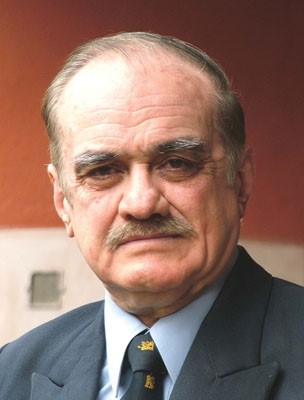
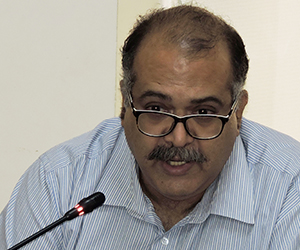
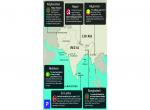
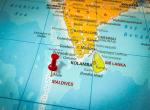

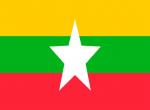
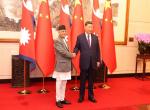
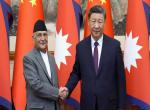

Post new comment